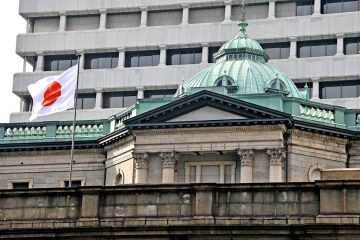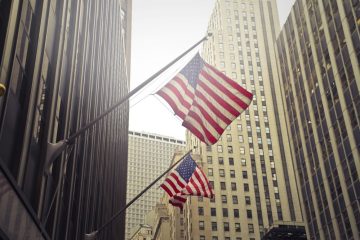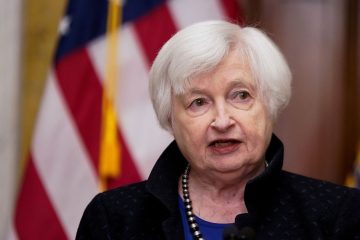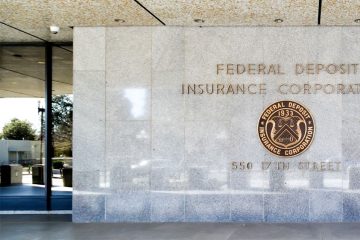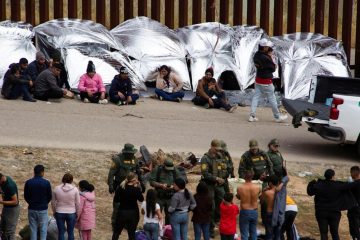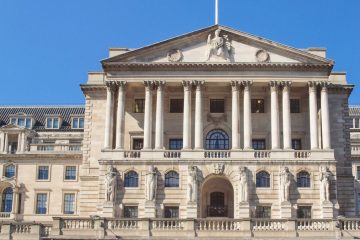Donald Trump’s acceptance speech last night at the Republican National Convention saw him doubling down on his primary messages of fear, division, and populism, likely further alienating him from large swaths of the electorate, including business leaders on Main Street and Wall Street. Mr. Trump presented a dystopian version of America in his speech, one where the rule of law was broken and illegal immigrants roamed free like vicious zombies out for blood.
His decision not to move to the middle and tone down the divisive rhetoric will probably cost the billionaire dearly on election day, as during the general election he will be unable to carry critical states, like Florida, where new immigrants and ethnic minorities make up a large chunk of the electorate. His stance against free trade will also make it more difficult for him to raise money and garner support from certain industries in the state, like the boating industry (more on that below), which heavily depend on free trade agreements to facilitate and protect their businesses.
The Republican Party tried desperately all week to paint Mr. Trump in a softer and gentler light. His children spoke about how he was a loving father, while his friends and business partners, like Tom Barrack of Colony Capital, talked about his generosity and effectiveness as a manager. But after he embraced his daughter Ivanka and took the podium last night, Mr. Trump managed to destroy all that work in one 75-minute speech.
Now, Mr. Trump didn’t say anything particularly new last night. Those familiar with his stump speeches on the campaign trail have heard it all before. But this was the speech in which the billionaire was supposed to move to the middle to appeal to independent voters. And yet he equated illegal immigrants with murderers, called for a ban on Muslim immigration, and pushed for the construction of a wall on the Mexican border.
But what some business leaders in the audience and elsewhere found most troubling were the remarks he made concerning international trade. Mr. Trump called for the pending Trans-Pacific Partnership (TPP) to be ripped up and the North American Free Trade Agreement (NAFTA) to be renegotiated. He also disparaged other agreements, most notably the U.S.-Korean free trade agreement (KORUS).
One industry concerned with Mr. Trump’s hardline stance against trade—especially the TPP and KORUS—is the U.S. boat building industry. The National Marine Manufacturers Association, a trade group representing around 1,500 boat builders from around the country, held a daytime party at a marina in downtown Cleveland during the GOP Convention to show off a few of the boats built by its members. Many of the boat builders were concerned about how the election was going, especially when it came to international trade.
“Right now, we don’t face much international competition in the boat manufacturing industry. In fact, the U.S. is by far a net exporter of boats,” Bill Yeargin, CEO of Orlando-based Correct Craft, maker of the high-end Nautique boat line, told Fortune. “But give it some time and we will soon be facing a deluge of Asian imports. That’s why we need the TPP.”
Mr. Yeargin went on to explain how the U.S. currently charges almost no tariffs on the importation of boats from foreign countries, while foreign countries have tariffs against U.S. boat exports that range from as little as 5% to as high as 100% or more.
“This is why the TPP would be such a good thing for the boating industry, because all those countries in Asia have big tariffs that will all just go away,” he said. “The TPP levels the playing field for us, so if one of those countries decide one day to start exporting boats to the U.S., we could compete on equal terms.”
Trump’s speech forgot about American builders and exporters who depend, or who will depend, on those free trade agreements with other nations to do business. As the boat builders show, those trade agreements not only help U.S. businesses engage internationally, they also protect the businesses as well.
It’s time for Mr. Trump to stop viewing the world in black and white and instead see all the shades of gray that make it so complicated and yet so interesting. Not all illegal immigrants are bad, just as not all trade agreements are unfair. In negotiation, compromise must be made to secure an agreement. You can’t have everything go your way all the time. While some provisions of the TPP aren’t ideal for certain U.S. industries, they are very useful for others. It is the net effect that counts, and as study after study has shown, free trade is good for the U.S. economy and the world.

